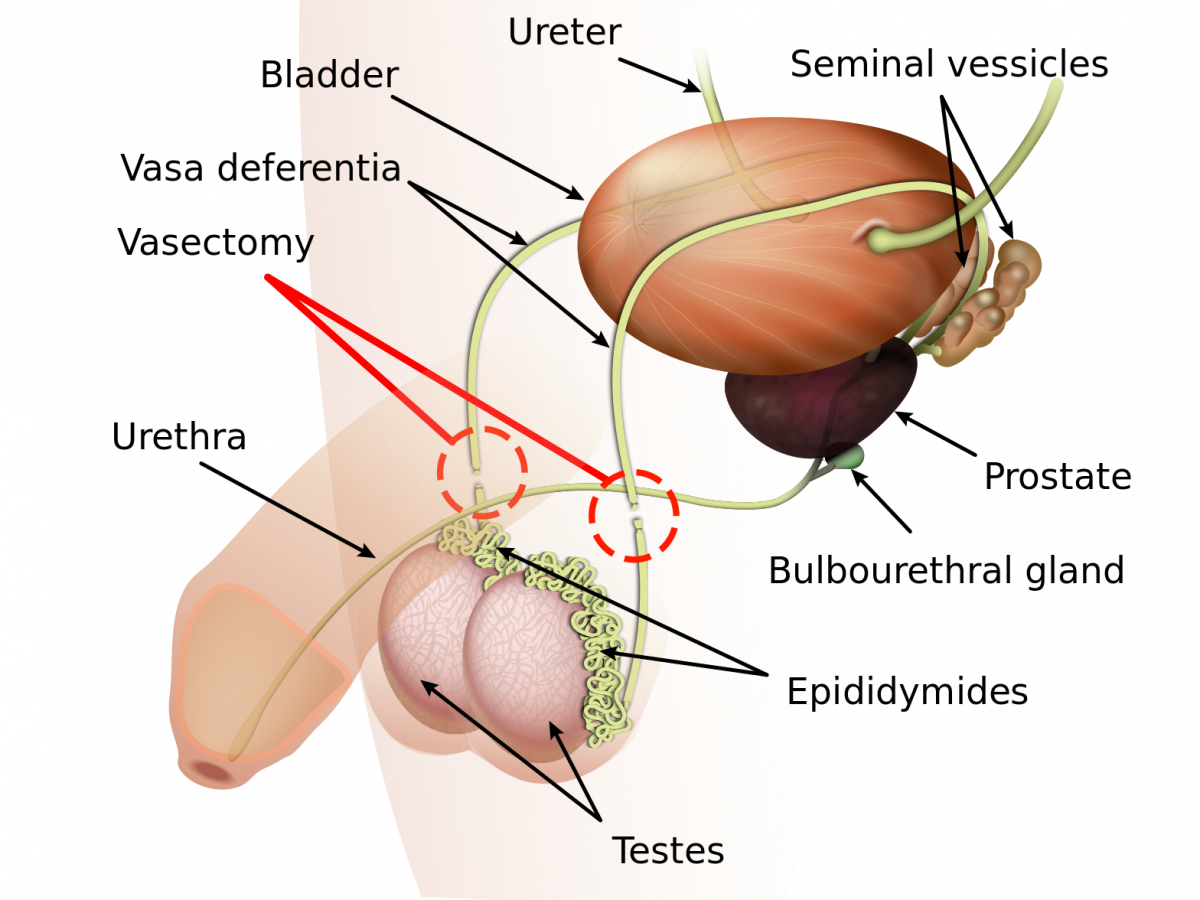Vasectomies and condoms are basically the only effective forms of male contraception currently available to men. You may be doing your research into contraception for men and have run across the term "male birth control injection". To give a complete picture, let's take the time to take a look at the "male birth control injection", plus a few various other "methods" of contraception that are currently in the investigative stages. It is important to note that none of these contraception methods for males to be discussed have been proven to be effective at this stage of the game and that it will most likely be a minimum of two to three years before any of them are available for actual use in the US.
As for condoms and vasectomies, both have advantages and disadvantages. Although a condom is up to ninety-eight percent (98%) effective, that number decreases down to eighty-two percent (82%) when not used regularly or correctly. Another advantage condoms also offer is that they're the only contraceptive method other than total abstinence that protects against and prevents transmission of sexually transmitted diseases (STD's). A vasectomy is over ninety-nine percent (>99%) effective at contraception and the prevention of a pregnancy via sexual intercourse. However, it's a major consideration that while, theoretically at least, vasectomies can be reversed, reversals do not work many times, plus the procedure also requires a specialist to perform the surgery. Unless a man is positive that he doesn't want to produce a child again "down the road", it may not be the correct choice to for him to make.
Future Alternative Possibilities To Condoms Or Having A Vasectomy
Currently there are literally over ninety potential methods being researched for use for birth control in males. These include such methods as the male birth control injection, plus additional methods that target fertilization, sperm mobility and sperm transport, plus even contraception by interfering with spermatogenesis. Once again, it's important to note that none of these male contraception methods have been proven to be effective at this stage of the game and that it will most likely be a minimum of two to three years before any of them are available for actual use in the United States.
The Male Contraceptive Polymer Injection (or "Male Birth Control Injection")
Also being "dubbed" the male birth control injection, instead of cutting the Vas Deferens tubes that carries a man's sperm to his penis as seen in a vasectomy, polymer gels are instead injected into the Vas Deferens that damage the sperm that passes through so they can't reach and fertilize a female's egg. Currently there are two that are being mentioned:
1. RISUG - which is currently in late-stage human trials in India.
2. Vasalgel - being developed in the United States, but has not moved to the clinical trial phase.
So far research has "suggested" that the Indian version (or RISUG) may be effective once injected for up to ten years. It is also completely reversible by "flushing it out" with an injection of simple baking soda (sodium bicarbonate). Also noteworthy is the fact that no adverse side effects were reported in the Indian trial, other than the normal temporary mild scrotal pain or discomfort.
The ADAM System (Hydrogel Implant)
The ADAM System (by Contraline) is a contraceptive hydrogel implant that's injected into the Vas Deferens to block sperm., which then are reabsorbed by the man's body. It's considered to be a reversible contraceptive solution as the hydrogel liquefies when the product’s lifespan expires and sperm can flow freely again.
Transdermal Male Contraceptive Gels (Nestorone & Testosterone)
The transdermal topical gel is actually a combination of Nestorone, a progestin, and testosterone. Applied each day to a man's shoulders, the active ingredients are then absorbed through the skin that results in a reduction of sperm. A study conducted in 2019 showed that the gel lowered sperm counts to a "contraceptive level" in eighty-four percent (84%) of men in the study. More clinical trials are currently underway with participants of both the Population Council and the National Institute of Child Health and Human Development involved.
Male Contraceptive Pill (DMAU)
Dimethandrolone undecanoate (DMAU) is a "once a day" male contraceptive pill that reduces both a man's production of sperm, but also his testosterone (without causing the undesired symptoms seen with low testosterone). So far, the clinical research performed indicates that DMAU is effective and well-tolerated. There's additionally an injectable formulation of DMAU that is also currently in clinical trials.
Non-Hormonal Male Contraceptive Pills
Two examples of nonhormonal male contraceptive pills currently receiving some media attention are EPPIN Pharmaceutical's pill and one pill known as YCT529.
- Epididymal Protease Inhibitor (Eppin)
This is a nonhormonal male contraceptive pill that functions by binding to human sperm and this leads to a loss of the sperm's motility. After taking the pill , so sperm are no longer able to "swim" to the female's egg to fertilize it. Because of the way it works, the Eppin pill may potentially be used daily, or on an "on-demand" basis. The Eppin pill is scheduled to enter human clinical trials next year.
- YCT529
Research on what's known as YCT529 that was released by the American Chemical Society found that a formulation named YCT529 was ninety-nine percent (99%) effective in preventing pregnancies in mice. It was also proved reversible after the same mice impregnated other mice when the YCT529 was stopped. Obviously that, while it was effective in mice, it may not be the same in humans. Researchers indicated that YCT529 could be available in about five years, maybe a bit sooner.
Questions About Vasectomies and Alternative Solutions?
At Philadelphia Urology Associates, Dr. Bruce Sloane is a nationally renowned specialist in Men's Health issues and Age Management Medicine. Throughout Philadelphia and the surrounding areas, patients seek his expertise to treat erectile dysfunction and other sexual performance issues. Using state-of-the-art equipment and having extensive specialized education and training, Dr. Sloane will find the treatments and solutions that will work best for you.
Dr. Sloane has performed hundreds of vasectomies during his years of practice as a Urologist in Philadelphia and the surrounding areas like Delaware County. Deciding whether or not to have a vasectomy is a major life choice, and many men find that the decision can be rather intimidating. If you feel that you need more information on the procedure, or perhaps to discuss any other men's health issues or age management, please feel free to call us at (215) 563-1199 or contact us online now!

